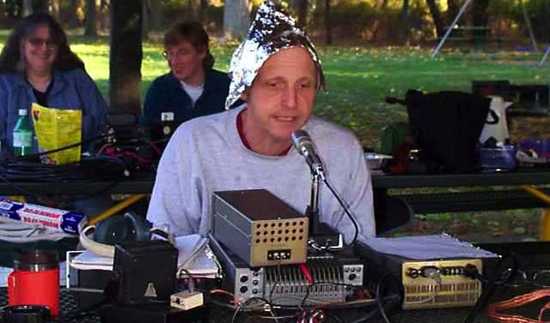Source: North Carolina State University

Summary: A recent study finds that teaching critical thinking skills in a humanities course significantly reduces student beliefs in 'pseudoscience' that is unsupported by facts.
"Given the national discussion of 'fake news,' it's clear that critical thinking -- and classes that teach critical thinking -- are more important than ever," says Anne McLaughlin, an associate professor of psychology at NC State and co-author of a paper describing the work.
"Fundamentally, we wanted to assess how intentional you have to be when teaching students critical thinking," says Alicia McGill, an assistant professor of history at NC State and co-author of the paper. "We also wanted to explore how humanities classes can play a role and whether one can assess the extent to which critical thinking instruction actually results in improved critical thinking by students.
"This may be especially timely, because humanities courses give students tools they can use to assess qualitative data and sort through political rhetoric," McGill says. "Humanities also offer us historical and cultural perspective that allow us to put current events into context."
For this study, the researchers worked with 117 students in three different classes. Fifty-nine students were enrolled in a psychology research methods course, which taught statistics and study design, but did not specifically address critical thinking. The other 58 students were enrolled in one of two courses on historical frauds and mysteries -- one of which included honors students, many of whom were majors in science, engineering and mathematics disciplines.
The psychology class served as a control group. The two history courses incorporated instruction explicitly designed to cultivate critical thinking skills. For example, students in the history courses were taught how to identify logical fallacies -- statements that violate logical arguments, such as non sequiturs.
At the beginning of the semester, students in all three courses took a baseline assessment of their beliefs in pseudoscientific claims. The assessment used a scale from 1 ("I don't believe at all.") to 7 ("I strongly believe.").
Some of the topics in the assessment, such as belief in Atlantis, were later addressed in the "historical frauds" course. Other topics, such as the belief that 9/11 was an "inside job," were never addressed in the course. This allowed the researchers to determine the extent to which changes in student beliefs stemmed from specific facts discussed in class, versus changes in a student's critical thinking skills.
At the end of the semester, students took the pseudoscience assessment again.
The control group students did not change their beliefs -- but students in both history courses had lower beliefs in pseudoscience by the end of the semester.
Students in the history course for honors students decreased the most in their pseudoscientific beliefs; on average, student beliefs dropped an entire point on the belief scale for topics covered in class, and by 0.5 points on topics not covered in class. There were similar, but less pronounced, changes in the non-honors course.
"The change we see in these students is important, because beliefs are notoriously hard to change," says McLaughlin. "And seeing students apply critical thinking skills to areas not covered in class is particularly significant and heartening."
"It's also important to note that these results stem from taking only one class," McGill says. "Consistent efforts to teach critical thinking across multiple classes may well have more pronounced effects.
"This drives home the importance of teaching critical thinking, and the essential role that humanities can play in that process," McGill says. "This is something that NC State is actively promoting as part of a universitywide focus on critical thinking development."
The paper, "Explicitly teaching critical thinking skills in a history course," was published March 20 in the journal Science & Education.
Source https://www.sciencedaily.com/releases/2017/03/170320104021.htm